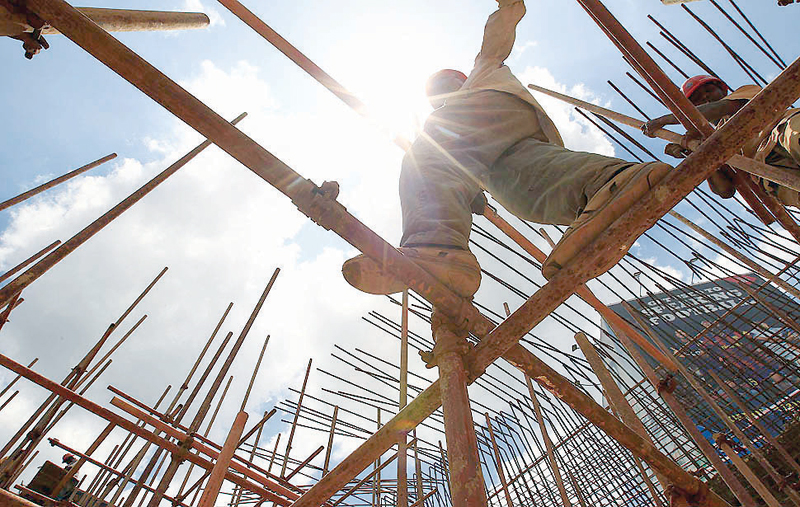

The Omani economy is projected to grow a heartening, if modest, three per cent in 2018, buoyed by gradually rebounding oil prices, intensifying economic diversification efforts, and a reinvigorated investment environment.
This was revealed at a pre-budget briefing hosted by the Government Communications Centre for leading Omani business personalities, economists and select media personnel on Sunday.
The briefing, jointly led by Badar al Hinai, Head — Government Communications Unit, and Khalid al Hinai from the Ministry of Finance, offered insights into initiatives by the Omani government designed to shore up economic growth despite the ongoing downturn that has sharply eroded state revenues.
The 2018 State Budget will continue to give funding impetus to the implementation of strategic national projects and investment initiatives that are critical to keeping economic development on track, he said. A key objective is to achieve at least a 3 per cent increase in economic growth, while keeping inflation in check. Equally important is the effort to control and reduce the debt, if possible, the officials noted.
No new taxes are envisioned in the 2018 Budget, although a selective tax (Excise Tax) will be levied on certain products, such as tobacco, alcohol and fizzy drinks. An integrated service fee for municipal services will also be introduced. With a view to keeping a lid on government spending, the moratorium on recruitment within government ministries and departments will continue to be maintained, with the sole exception of jobs deemed vital for the smooth operation of these entities. Routine promotions will be frozen for the year as well.
However, resources will be allocated for intensive training and human capital development efforts during the year. In this regard, the officials reiterated the government’s call to the private sector to contribute to the national goal of creating 25,000 positions for Omani jobseekers by June 2018.
This translates to a monthly target of around 4,300 jobs, around 80 per cent of which will come from the private sector, with public sector organisations contributing the balance 20 per cent.
Further, in an effort to keep government spending in check for the foreseeable future, a new Financial Framework for State Budgets is planned for the 2018-2021 timeframe, the officials said. Incidentally, public expenditure declined 18 per cent during the four years spanning 2015-2018. Priority will be given to efforts to reduce the deficit if oil revenue inflows grow significantly, it was noted.
Also during the briefing, officials shed light on initiatives launched by various government entities in support of economic development and job creation.
The Ministry of Commerce and Industry, for example, has signed agreements paving the way for the establishment of an Advanced Manufacturing Research Centre — a hub for high tech industrial innovation — at Sohar University. Separately, a grouping of Omani industrialists has been created to help the government achieve the nation’s industrial growth ambitions.
Also expected to make headway is an enhanced air cargo handling capability at Muscat International Airport.
Air cargo throughput jumped 23 per cent in 2017, while general cargo volumes climbed 35 per cent across the nation’s maritime gateways during the year.
Zainab Al Nassri
Oman Observer is now on the WhatsApp channel. Click here



